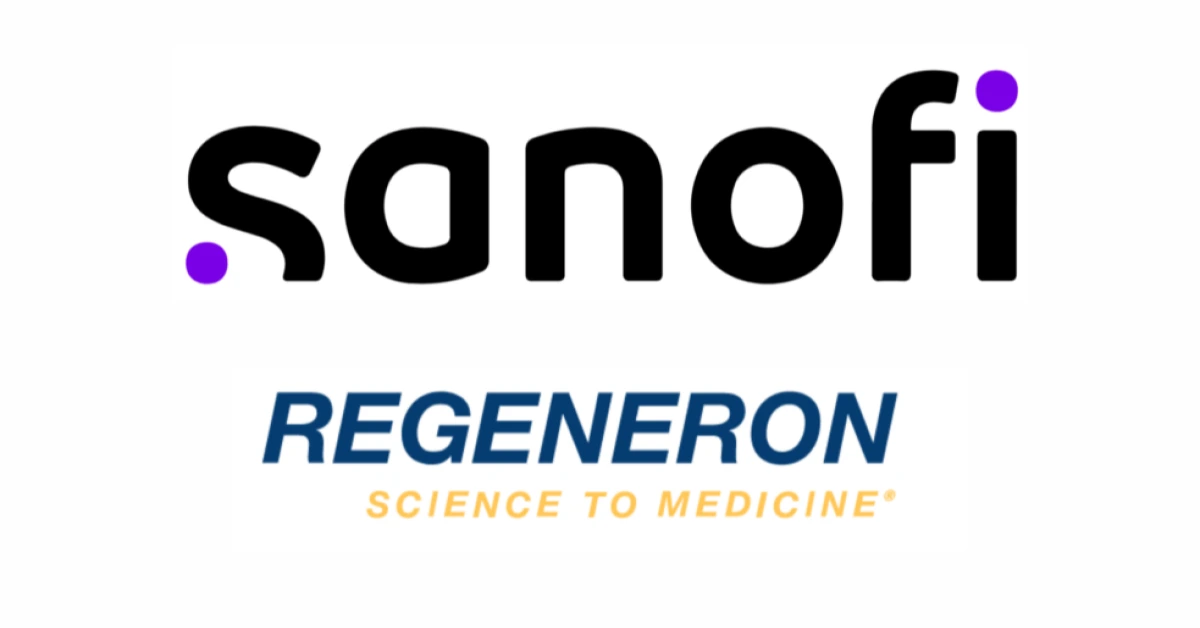
USA – The U.S. Food and Drug Administration (FDA) has approved Dupixent (dupilumab), a biologic developed by Regeneron and Sanofi, for the treatment of chronic obstructive pulmonary disease (COPD) in adults.
The approval, granted in late September 2024, makes Dupixent the first biologic to be authorized for COPD, opening up a new therapeutic avenue for patients suffering from this respiratory condition.
Dupixent’s approval marks a milestone as the first biologic approved for chronic obstructive pulmonary disease (COPD). COPD causes progressive lung function decline and is the third leading cause of death worldwide.
Analysts predict the drug will dominate the market, with potential revenue reaching billions over the next decade.
The approval was based on robust clinical data that demonstrated Dupixent’s ability to significantly reduce exacerbations in adults already on maximal standard-of-care inhaled therapy.
This development has positioned Regeneron and Sanofi to capitalize on their existing presence in lung disease treatments, giving them a head start in what is expected to become a highly lucrative market.
Dupixent’s market potential: A billion-dollar opportunity
Industry analysts are projecting substantial revenue growth for Dupixent in the COPD space.
According to GlobalData, Dupixent is expected to generate over US $6.5 billion in annual sales for COPD by 2033, in addition to its existing revenue across other indications.
Dupixent had already brought in US $11.59 billion in sales across six other indications by 2023.
The newly approved indication for COPD enables Regeneron and Sanofi to target approximately 300,000 U.S. adults with an eosinophilic phenotype and inadequately controlled COPD.
These patients represent a segment of the population with limited treatment options, making Dupixent a promising solution for improving patient outcomes.
Despite varying estimates, the overall forecast signals a bright future for Dupixent in COPD treatment.
Sanofi projects peak annual COPD sales for Dupixent and its other lung disease biologic, itepekimab, to reach 5 billion euros (US$5.5 billion).
Meanwhile, analysts from BMO Capital Markets predict a more conservative peak yearly revenue of US $2.5 billion for Dupixent in COPD.
Expert views on Dupixent’s clinical advantage
Asiyah Nawab, a pharma analyst at GlobalData, emphasized the drug’s strong clinical data as a key factor in its potential market dominance.
“The key opinion leaders interviewed by GlobalData have shared optimistic views on Dupixent, noting that the data presented in the clinical trials brings a great advantage to the asset and to the COPD space, perhaps even over other biologics in the COPD pipeline,” she said.
The first-mover advantage, combined with Dupixent’s proven efficacy in reducing exacerbations, gives Regeneron and Sanofi a significant lead in the biologics market for COPD.
Competition on the Horizon: AstraZeneca, GSK, and Roche
Although Dupixent is currently the only biologic approved for COPD, other pharmaceutical giants are preparing to enter the market.
Competitors like AstraZeneca, GlaxoSmithKline (GSK), and Roche are developing their own biologics for COPD, albeit after experiencing some setbacks.
AstraZeneca had to pivot from its original COPD biologic, Fasenra (anti-IL-5 antibody), after it failed in Phase III trials in 2018.
The company has now turned its focus to tozorakimab, an anti-IL-33 antibody, which is undergoing multiple Phase III trials, expected to conclude in 2026.
Meanwhile, GSK is making a comeback with its anti-IL-5 biologic Nucala. In September 2024, GSK shared promising Phase III data showing a reduction in COPD exacerbation rates.
These results are expected to influence ongoing regulatory discussions, and full results will be presented at an upcoming scientific conference.
Roche is also in the race with its anti-ST2 antibody, astegolimab, which has shown potential in improving overall health in COPD patients, despite mixed Phase II results. Roche has started two Phase III trials with expected completion dates in 2025 and 2027.
Dupixent’s strategic launch
Regeneron and Sanofi are wasting no time in preparing for Dupixent’s launch in the COPD market.
Speaking at a Morgan Stanley conference in September 2024, Ryan Crowe, Senior Vice President of Investor Relations at Regeneron, outlined the company’s plans to navigate the complexities of launching a biologic for an older patient population, many of whom are covered under Medicare Part D.
Crowe acknowledged that while the contracting payer process could take a few months, the partners are well-positioned to make a strong entry into the market.
“We’re looking at it in terms of a few months, but with our sales force in place and the familiarity pulmonologists already have with Dupixent in asthma, we expect a very meaningful and exciting launch,” he said.
With Dupixent already widely used for asthma, many pulmonologists are familiar with its efficacy, giving the drug an advantage as it enters the COPD space.
The companies are also working to secure formulary positions to ensure the biologic is accessible to patients once the rollout begins.
XRP HEALTHCARE L.L.C | License Number: 2312867.01 | Dubai | © Copyright 2025 | All Rights Reserved